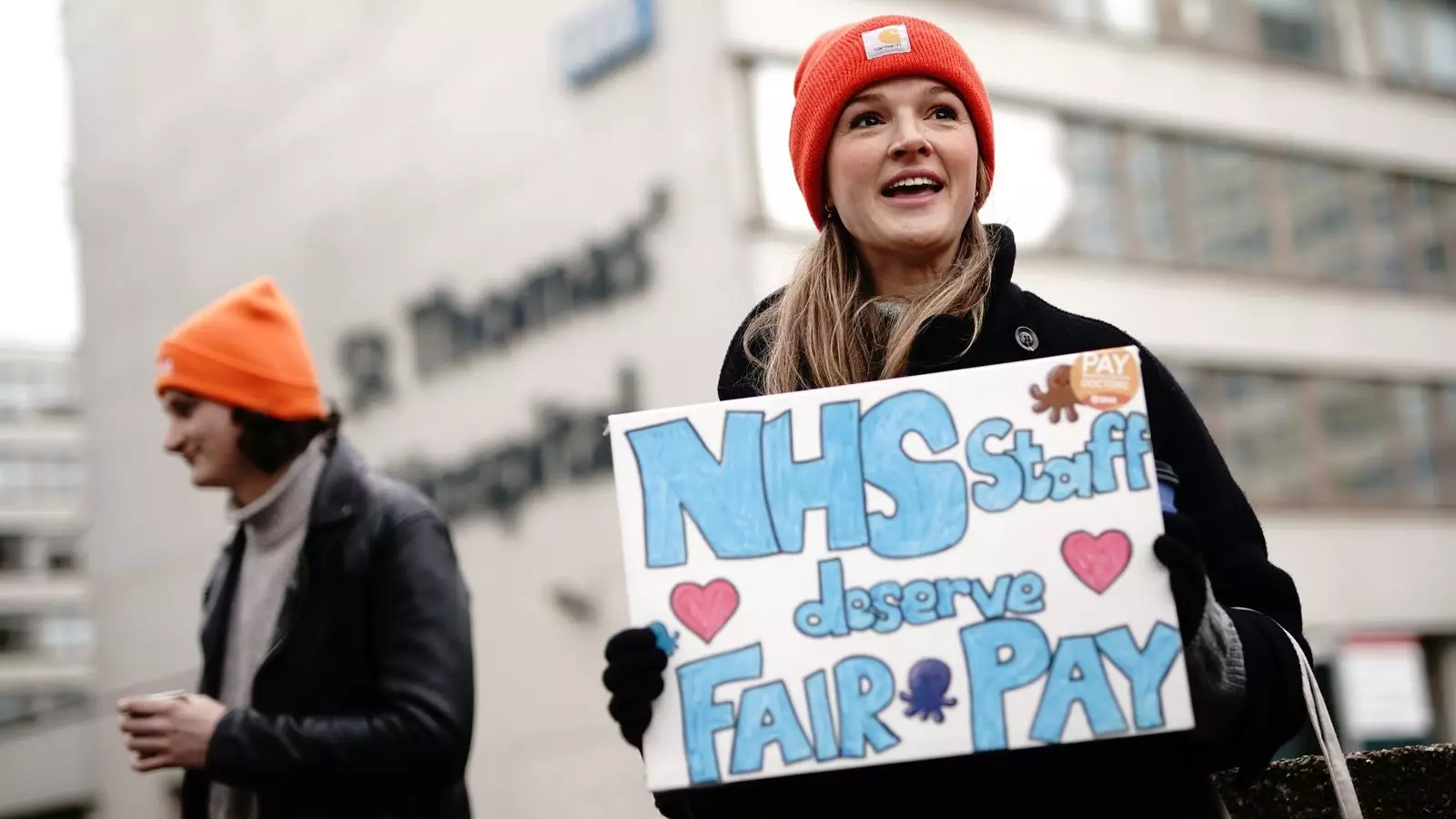The recent 22.3% pay rise offer by the government to junior doctors in England has sparked discussions and debates within the medical community. This offer comes after months of strike action by junior doctors over issues related to their pay. The British Medical Association’s (BMA) junior doctors committee is considering the offer, which, if accepted, could potentially bring an end to the ongoing walkouts.
The proposed pay rise would be rolled out over two years, with an increase of between 8.1% and 10.3% in addition to a backdated 4.05% raise for 2023-24. Moreover, there would be a 6% pay rise for 2024-2025 along with a £1,000 payment, equivalent to a pay rise of around 7% to 9%. While the offer falls short of the 35% pay rise that junior doctors had been advocating for to compensate for years of below-inflation salary adjustments, it still represents a significant increase.
Chancellor Rachel Reeves is set to announce the pay rises, emphasizing the need for spending cuts to address a perceived £20bn deficit left by the previous Conservative government. The government has expressed a willingness to find a solution to the ongoing dispute with junior doctors, acknowledging the economic challenges but pledging to work towards resolving the issues to prevent further strikes.
According to Vicky Pryce, chief economic adviser to the Centre for Economic and Business Research, the government’s offer of a 22.3% pay rise is within their financial capacity, considering the high cost of cancelled operations and appointments due to the strikes. Pryce argues that the cost of not reaching a resolution with junior doctors could far exceed the amount required to implement the proposed pay increase.
Junior doctors have been vocal about their concerns regarding pay disparities and the impact it has on their overall well-being. The demand for a substantial pay rise reflects their frustration over what they perceive as years of inadequate salary adjustments. The walkouts and strikes have disrupted healthcare services, leading to a backlog of appointments and operations, further underscoring the urgency of reaching a resolution.
The government’s offer of a 22.3% pay rise to junior doctors in England marks a significant development in the ongoing dispute over salaries. While the offer falls short of the 35% increase sought by junior doctors, it represents a step towards addressing their concerns. The economic implications and the impact on healthcare services underscore the importance of reaching a timely resolution to prevent further disruptions. It remains to be seen how junior doctors will respond to the offer and whether it will pave the way for a lasting solution to the pay dispute.


Leave a Reply